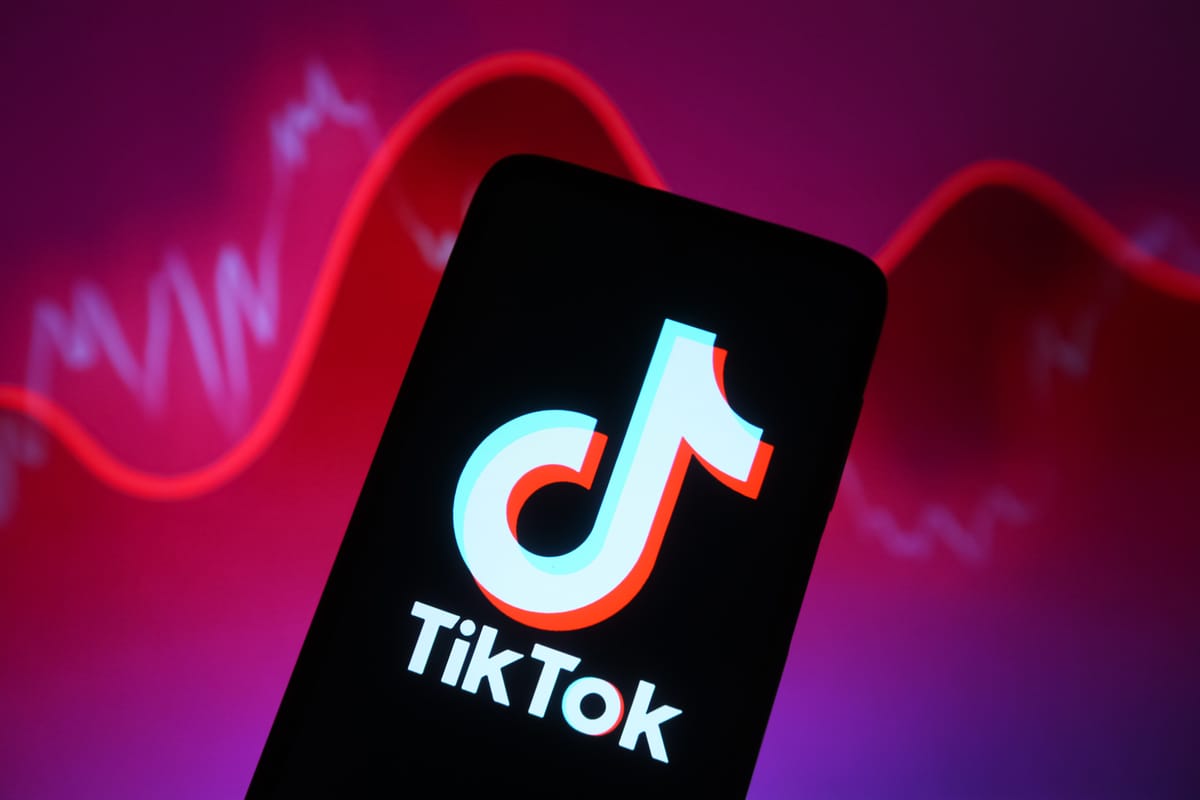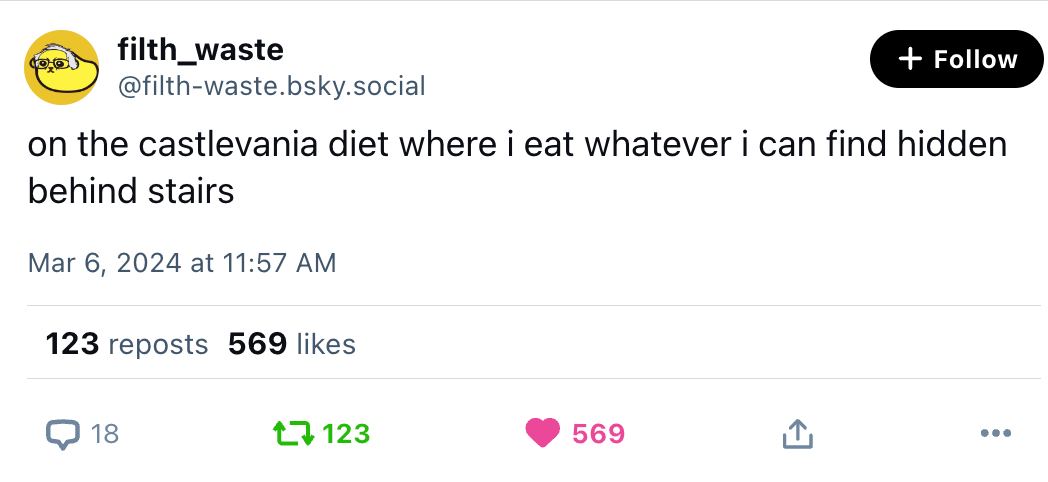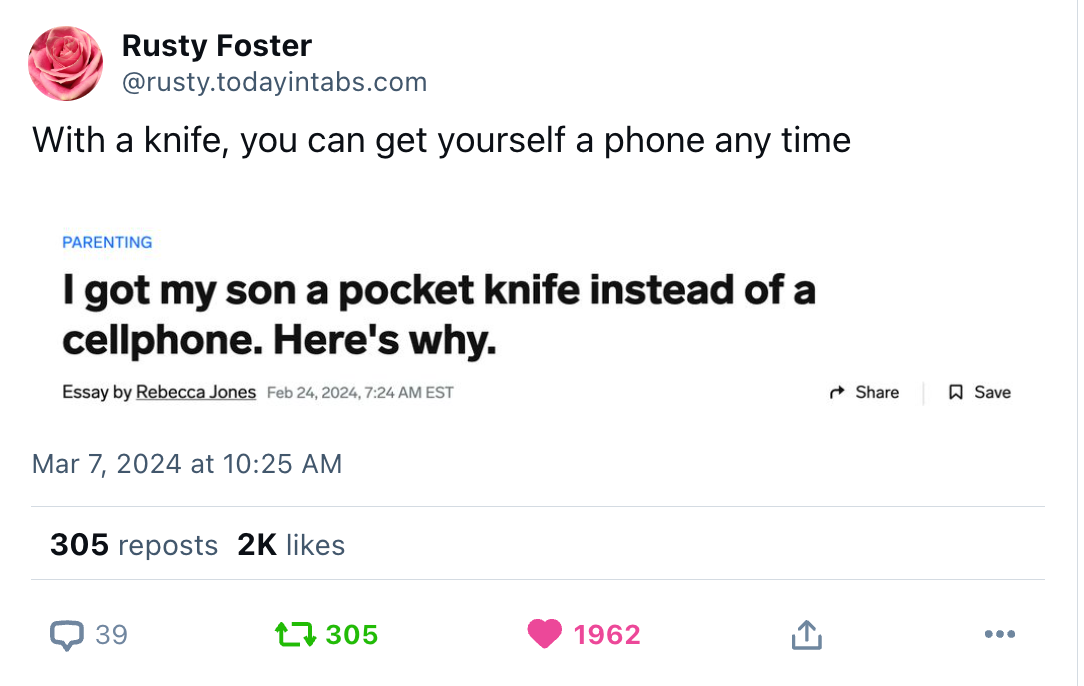|
After a year of laying low, ByteDance’s crown jewel faces a serious new threat
Here's your free weekly edition of Platformer: a look at the new movement to ban TikTok. We've heard this story before — but this time, it really feels different.
Do you value the sort of work we do around here? If so, consider upgrading your subscription today. We'll email you all our scoops first, and you'll be able to discuss each today's edition with us in our chatty Discord server.
Today, let’s talk about a fast-moving new legislative effort in the United States to force ByteDance to divest itself of TikTok, or ban it nationally. The company has faced — and dodged — threats like this before. But while the odds are almost always against Congress getting new tech regulations over the finish line, there are reasons to believe things really might be different this time. A year ago, I wrote in this space that TikTok was nearing the endgame. The Committee on Foreign Investment in the U.S, of CFIUS, had recently given ByteDance an ultimatum: divest itself of TikTok, or else. Amid growing concerns that the app is used to spy on Americans and could serve as an avenue for Chinese influence operations, the Biden administration told ByteDance that Chinese ownership of the app used by 170 million Americans was no longer tenable. But “or else” never arrived. TikTok continued under Chinese ownership, and while the app has been banned on government devices in the federal bureaucracy and many states, last month President Biden’s campaign created an account on TikTok and started posting there. I had made the classic mistake of assuming that US officials complaining loudly about social media would lead to action. Instead it led only, as usual, to those same officials posting videos to the very social networks that they loudly complain about. Anyway, at the risk of making the same mistake I did last year: it appears as if US officials complaining loudly about social media might actually lead to action this time. The reason is the Protecting Americans from Foreign Adversary Controlled Applications Act. Introduced just two days ago, on Thursday the bill passed unanimously out of the House Energy and Commerce Committee on a bipartisan vote of 50 to zero. It has two main provisions. The first requires ByteDance to divest TikTok and other apps it controls within 180 days after the bill is enacted. Otherwise, those apps will be banned in the United States. The second provision creates a process that would let the president ban an app owned by a foreign adversary if it is determined to pose a threat to national security. In other words, this is the “or else” that the Biden administration warned about last year. The call for ByteDance to sell TikTok would now carry added legal force. And if China blocked a sale — as observers assume it will — Congress would have created a process by which TikTok would be banned outright. From TikTok’s perspective, it appears that forced sale is a nonstarter. “This legislation has a predetermined outcome: a total ban of TikTok in the United States,” the company told me today in a statement. “The government is attempting to strip 170 million Americans of their Constitutional right to free expression. This will damage millions of businesses, deny artists an audience, and destroy the livelihoods of countless creators across the country.” Of course, that assumes that Congress’ bill will become a law. So what makes it feel different this time? One key difference here is speed. It’s rare for any legislation, much less a major tech regulation, to be introduced and pass out of committee in two days. Compare that to a similar bill introduced in the Senate last year. More than one quarter of senators co-sponsored the legislation, but the bill languished all year — and it never came up for a vote. (One of the lead sponsors, Democrat Mark Warner of Virginia, blamed inaction on intense lobbying from TikTok.) Another bill that sought to ban TikTok last year passed out of the House Foreign Affairs Committee but earned no votes from Democrats. The House bill, by contrast, is moving briskly — and with strong bipartisan support. That brings us to a second key difference about this bill: President Biden is working with Republicans. The Associated Press reported today that the Biden administration is providing “technical assistance” to the Republicans drafting the measure. Press secretary Karine Jean-Pierre said the bill “still needs some work” to get Biden’s endorsement, but it appears that both sides are already basically aligned. We haven’t seen that with a TikTok bill before. The third and final difference with this bill is that TikTok seems seriously worried about it. Over the past day, the company sent push alerts to users through the app, which opened to a screen bearing the following warning: Speak up now — before your government strips 170 million Americans of their Constitutional right to free expression. This will damage millions of businesses, destroy the livelihoods of countless creators across the country, and deny artists an audience. Let Congress know what TikTok means to you and tell them to vote NO. John W. Herrman reports at Intelligencer that, for him and at least some other users, the message could not be dismissed: users who wished to use the app had to either press the button to call the Congressional switchboard or hard-reset the app. (TikTok said it could be closed by tapping an X button or swiping it away; I haven’t seen the screen myself.) It’s rare but not unprecedented for platforms to draft their users into lobbying on their behalf: Uber, Facebook, Google, and Netflix are among the companies that have placed messages inside their various apps with calls to action. But whether because of authentic user love for TikTok or the un-dismissable notification in the app, ByteDance’s lobbying resulted in a flood of phone-based activism into Congress on Thursday. Here are Cristiano Lima-Strong and Drew Harwell at the Washington Post: Individual House offices have since received hundreds of calls from TikTok users, at times fielding upward of 20 a minute, according to eight congressional aides, who spoke on the condition of anonymity to describe the outreach. The volume has been so immense that some offices resorted to temporarily shutting off phones, two aides said, while others struggled to field unrelated calls. [...]
Some congressional aides said the callers bombarding their offices skewed young, while others said they appeared to range in age from teens to senior citizens. One of the bill’s co-sponsors, Rep. Mike Gallagher (R-WI), criticized the lobbying effort, Semafor reported. “Here you have an example of an adversary-controlled application lying to the American people, and interfering with the legislative process in Congress,” Gallagher said in response to the calls. “In a weird way it almost proves the point that we’ve been making here.” I’m not sure how “asking Americans to call their elected representatives to voice their opinions” qualifies as “interfering with the legislative process.” But to the extent that it demonstrates how TikTok can influence politics — if only the politics around its own continued existence — then I suppose it does lend credence to fears that the app would prove useful in Chinese influence campaigns. If the House passes the bill, there’s no guarantee the Senate would follow. (Democrat Chuck Schumer, the Senate majority leader, is famous among Washington lobbyists for his willingness to quash tech regulations.) And even in the event that the bill is signed into law, litigation would surely follow. The American Civil Liberties Union and Electronic Frontier Foundation both oppose the bill. But where other tech regulations have transparently violated the First Amendment, this bill takes pain to note that it places no restrictions on content. Rather, it makes the case that TikTok poses a national security threat — a charge that, despite spending billions on its Project Texas data security project, TikTok has never been able to adequately refute. I suspect members of the Supreme Court, who don’t use or care about social media anyway, would give Congress wide latitude on this point. Not everyone is so sure about that, though. "The problem with the argument that this is just about data practices is all the politicians who keep saying that these measures are necessary because they're very concerned about the content on TikTok," said Evelyn Douek, an assistant professor of law at Stanford Law School and expert in content moderation. "We're in a moment where platform regulations are testing the First Amendment all over the place, so it's hard to be confident on any outcome," Douek said. "But there's no workaround for the First Amendment where you can ban an entire speaker or medium of communication and say that it's just incidental to regulation of conduct. It's true that Courts will sometimes give more credence to national security arguments, but they shouldn't be a escape hatch from First Amendment problems, either." I continue to feel ambivalent about the prospect of a TikTok ban. Even if such a move doesn’t violate the First Amendment, it would result in a broad suppression of speech — including lots of valuable political speech. And a world without TikTok is a gift to Meta and Google, whose power over the short-form video market will consolidate significantly as a result. But from surveilling journalists to pushing pro-China messaging in another one of its US apps, ByteDance ultimately made its own bed. And after all this time, it appears as if the company may finally be forced to lie in it. — Zoë Schiffer contributed to this report
Sponsored Cash management for startupsCrafting your startup’s cash management strategy? First, divide your funds into three categories: liquid, short-term, and strategic. From there, it’s about optimizing for risk and yield according to those time horizons. But how much should you put in each category? Learn more about how to create the best cash management strategy for your startup. *Mercury is a financial technology company, not a bank. Banking services provided by Choice Financial Group and Evolve Bank & Trust®; Members FDIC. Platformer has been a Mercury customer since 2020.
On the podcast this week: Kevin and I sort through Elon Musk's lawsuit against OpenAI. Then, I try to persuade Kevin that the Digital Markets Act could result in real change. And finally, the Wall Street Journal's Joanna Stern joins to compare notes with us after a month using Apple's Vision Pro. Apple | Spotify | Stitcher | Amazon | Google | YouTube
Governing- Apple is killing Epic Games’ iOS game store plan in the European Union, terminating the company’s developer account. (Jon Porter / The Verge)
- The new EU rules open up parts of Apple’s ecosystem that haven't been open before, allowing opportunities for Google to step in. Would Google really launch its on app store on iOS, though? (Sam Schechner and Kim Mackrael / Wall Street Journal)
- Google announced two new developer fees as part of their compliance plan for the EU’s Digital Markets Act. (Sarah Perez / TechCrunch)
- Three porn companies, including PornHub, are challenging their designations as very large online platforms under EU content moderation rules. (Clothilde Goujard / Politico)
- Big Tech companies complained to the White House about EU regulations, but while the Biden administration reportedly sent two letters to the EU Commission raising concerns, it didn’t push the matter. (Eva Dou / Washington Post)
- Donald Trump reportedly met with Elon Musk to ask for donations for his presidential campaign. (Maggie Haberman, Jonathan Swan and Ryan Mac / New York Times)
- OpenAI's other co-founders rebutted Elon Musk's lawsuit by publishing old emails between them that among other things show he knew that the money required to build AGI was far more than anticipated, and that a for-profit entity was required for funding reasons. (OpenAI)
- A district judge allowed parts of the lawsuit by music publishers against X alleging copyright infringement to continue, saying it’s still not clear to what extent X is liable for the infringing acts of its users. (Emma Roth / The Verge)
- 41 state attorneys general wrote a letter to Meta saying that there have been many complaints about Facebook and Instagram users getting their accounts stolen, and demanding the company take action. Remember when the company was going to staff up a customer service division to work on this problem? Did that ever happen? (Dell Cameron / WIRED)
- The Oversight Board overturned Meta’s decision to take down a video of a man confronting a woman in Iran for not wearing a hijab, arguing that showing a woman protesting the regime was too important to remove over the caption criticizing her for it. (Oversight Board)
- A Microsoft AI engineer warned the Federal Trade Commission about Designer’s propensity to generate violent and sexual images and ignore copyright, saying the company isn’t doing enough to prevent misuse. (Hayden Field / CNBC)
- Popular image generators, including Midjourney and ChatGPT Plus, often create misleading election-related images when prompted to, a study found. (Clare Duffy / CNN)
- Most people agree that AI must be made in alignment with human values, this author writes, but the evolution of the technology is coming faster than many realize. (Michael J. Totten / City Journal)
- A former Google software engineer was charged with stealing AI trade secrets while secretly working with two Chinese companies, the Justice Department said. (Eric Tucker / Associated Press)
- Google opened a cyberdefense hub in Tokyo, its first in the Asia-Pacific region, amid growing concerns about threats from China and elsewhere. (Nikkei Asia)
Industry- More than 100 AI researchers signed an open letter calling for AI companies like OpenAI and Meta to grant independent investigators access to their systems for safety-testing. (Nitasha Tiku / Washington Post)
- OpenAI chief technology officer Mira Murati’s concerns about Sam Altman’s management reportedly were a factor in the board’s decision to oust him. (Mike Isaac, Tripp Mickle and Cade Metz / New York Times)
- Y Combinator CEO Garry Tan has reportedly discussed joining the board of directors at OpenAI. (Natasha Mascarenhas / The Information)
- TikTok’s longform video creator payout program is now called Creator Rewards, and it requires creators to make videos longer than a minute to get paid. (Mia Sato / The Verge)
- ByteDance is launching a new share buyback program after its third-quarter revenue outpaced competitors like Meta. (Tracy Qu and Raffaele Huang / Wall Street Journal)
- Meta is working on an AI recommendation model that will power the company’s video recommendation engine across all platforms. (Jonathan Vanian / CNBC)
- Chinese e-commerce company Temu was Meta’s biggest advertiser in 2023, with a reported ad spend of almost $2 billion. (Dana Mattioli, Suzanne Vranica and Miles Kruppa / Wall Street Journal)
- Instagram and Facebook showed ads by Perky AI, that included a manipulated, blurred photo of actress Jenna Ortega when she was 16, advertising a deepfake service that can undress women. (Kat Tenbarge / NBC News)
- Musk says like, repost, and favorite counts will be disappearing from X’s main feed with only view counts visible. (Jody Serrano / Gizmodo)
- Amazon’s new AI shopping chatbot Rufus is mostly useless, this review says. (Shira Ovide / Washington Post)
- Apple is introducing a slew of changes to Safari and the App Store on iOS in the European Union, along with transcripts for podcasts and new emojis. (Niléane / MacStories)
- Spotify plans to pricing information in its app that links to subscription options in the EU, following the EU’s $2 billion fine on Apple. (Emma Roth / The Verge)
- Spotify is increasing prices in France due to a new tax designed to support local artists. (Reuters)
- LinkedIn says it's doubling down on news as its peers retreat. I'm going to guess it's "doubling down" in a way that doesn't result in any meaningful new revenue for journalism. (Sara Fischer / Axios)
- LinkedIn’s premium subscriptions brought in $1.7 billion in revenue in 2023, the company said in a filing. (Stephen Nellis / Reuters)
- Twitch is redesigning its mobile app for the first time since 2019. (Will Shanklin / Engadget)
- Discord is offering gamers rewards for online play in a product called Quest that lets users try out new games. (Cecilia D’Anastasio / Bloomberg)
- Inflection AI’s chatbot Pi now has 1 million daily users and has a new model that it says performs about as well as GPT-4. (Ina Fried / Axios)
- AI prompt engineering by humans could be a thing of the past, as new research shows prompt engineering could be done better by the model itself. (Dina Genkina / IEEE Spectrum)
Those good postsFor more good posts every day, follow Casey’s Instagram stories. (Link) (Link) (Link)
Talk to usSend us tips, comments, questions, and posts: casey@platformer.news and zoe@platformer.news.
|





